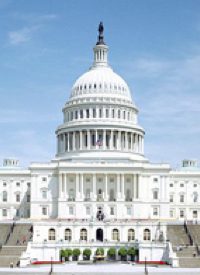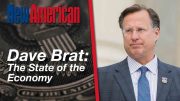
The Buffett Rule is named after Warren Buffett, the Omaha investor who runs Berkshire Hathaway, a multi-national conglomerate holding company. Buffett gained notoriety when he claimed in early 2011 that he paid taxes at a lower rate than his secretary, which he said was “unfair.” The bill would implement a higher rate for taxpayers in the highest income tax bracket to ensure that they do not pay a lower percentage of income than lower income taxpayers. The minimum rate would be 30 percent on income above $2 million a year, with a sliding scale of lower rates applied to incomes between $1 million and $2 million.
Although it appears that the Buffett Rule is dead on arrival, some have predicted that, even if it were passed by both houses of Congress and signed into law by the President, its impact on federal revenues would be modest, perhaps even imperceptible. The Joint Committee on Taxation, for instance, predicts that the rule would generate another $47 billion a year for the next 10 years, while the Tax Foundation estimates revenues raised would be $36.7 billion a year. With annual deficits exceeding $1 trillion a year, this additional revenue amounts to nothing more than a rounding error.
The rule is based on the assumption that Buffett does actually pay taxes at a lower rate than his secretary. But that is misleading, if not outright deceptive, according to Peter Schiff, CEO of Euro Pacific Precious Metals. Says Schiff:
The problem is that Buffett's entire argument is constructed on deception. Buffett is rated as the third richest man in the world for managing the nearly $393 billion in assets [of Berkshire Hathaway], and he highlights that he pays only pays 17.4% of his income in taxes. But this is because he earns less than 1% of his annual wealth from his salary, while over 99% is earned as the largest shareholder of Berkshire Hathaway….
He owns roughly 1/3 of Berkshire's outstanding shares, the profits from which are subject to a 29% corporate tax rate. Last year, Berkshire paid $5.6 billion in taxes — and the IRS says they owe $1 billion more! In addition to corporate taxes, Buffett is also subject to an additional 15% capital gains tax on his stock when he cashes out, not to mention any future estate tax, leaving many to conclude that his share of taxes is certainly higher than his secretary's. [Emphasis added.]
In simple terms, Buffett forgot to mention that the dividends he receives, on which he pays taxes at the 15 percent rate, have already been taxed at a 29 percent corporate rate, making the total 44 percent, far higher than the 17.4 percent he claims he paid.
Nevertheless, tax accountants and attorneys aren’t concerned that those in the highest income tax brackets will be forced to pay more. As David Miller, a partner at Cadwalader, Wickersham & Taft, LLP in New York, put it: “Largely, the Buffett rule is going to be manageable … with tax planning, people will be able to avoid it.” The strategies likely to be used involve investing in municipal bonds that generate interest free of federal income tax (and often state income tax as well). The wealthy may be able to delay selling some assets into the future, putting off the day of reckoning and depriving the government of its anticipated take. They may also engage in estate planning strategies where assets may be passed on to their heirs with little or no tax. Another strategy would involve moving to a low- or no-income tax state like Florida or Texas, to reduce further the impact of income taxes. The charitable deduction “loophole” would remain for the high-income earners. And there are certainly more exotic strategies likely to emerge if the Buffett Rule becomes law.
What is most foolish about all this nonsense about higher taxes for the rich and fairness and spreading the wealth is that ultimately it will turn out to be counterproductive. Even Democrats and Harvard professors agree. President John F. Kennedy said: “A tax cut means higher family income and higher business profits and a balanced federal budget. As the national income grows, the federal government will ultimately end up with more revenues. Prosperity is the real way to balance our budget.”
Robert Nozick, professor at Harvard, agrees: “Taxation of earnings from labor is on a par with forced labor. Seizing the results of someone’s labor is equivalent to seizing hours from him and directing him to carry on various activities.”
Assuming the Senate is unable to move the Buffett Rule forward, it won’t be missed.



